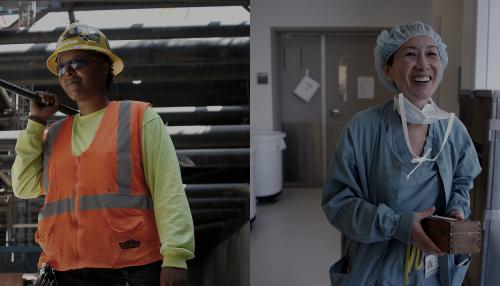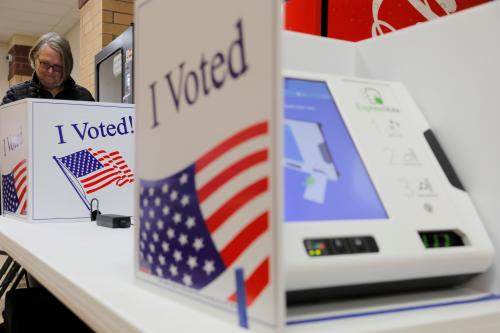The Democratic National Convention on Wednesday celebrated the role of women in public life with an extraordinary line-up of leaders including House Speaker Nancy Pelosi, Senator Elizabeth Warren, 2016 Democratic nominee Hillary Clinton, former Rep. Gabrielle Giffords, and vice presidential nominee Senator Kamala Harris. A powerful tribute in the centenary year of the passage of the 19th Amendment.
Still, America trails other wealthy nations in the number of women elected to high office. We need more women in politics, not just because America’s leaders should look like America, but because women can be especially effective in government.
But elevating women to positions of power is no panacea. For one thing, women do not share one political identity—indeed, more white women voted for Donald Trump than Hillary Clinton in 2016. Women are perfectly capable of reinforcing patriarchal assumptions and institutions, as well as other systems of exploitation and exclusion. Because there is nothing about being female that guarantees your place on the side of the oppressed, slogans about the future being female are politically anodyne.
Feminism requires policy content. And on this front, the convention provided amply. Wednesday’s programming featured a number of issues where women have been leading advocates for change, including gun control, climate change, and domestic violence.
To these, I would add two more issues where women are at the forefront.
First, ending the COVID-19 crisis. The cost of America’s almost unparalleled failure of governance has fallen heavily on women. Job losses have been heavier among women than men, and those still working are being squeezed by the need to care for children while working. As Sen. Warren so eloquently explained in her speech on Wednesday, when there is not childcare available to families, regardless of their ability to pay, women are pushed to the breaking point.
Second, reinforcing and strengthening unions. Everyone knows that unions built the middle class and, as a pro-union bumper sticker famously put it, “brought you the weekend.” But the stereotype of a union worker is probably still a burly man on an assembly line. In reality, some of the most populous and powerful unions today represent two occupational classes that are predominantly female: service workers and teachers. For example, the Culinary Workers Union—the largest group of organized labor in Nevada—is not a group of muscular blue collar men, but is dominated by women, people of color, and immigrants. With that in mind, it is no wonder that unions close gender disparities in pay, giving women—and especially women of color—greater economic independence and political empowerment.
On Wednesday, the Democratic National Convention nominated the first woman of color as a major party vice presidential candidate in American history. And it is good to recognize the progress made and still to be made in the election of women to political office. But, once the pomp and circumstance for made-for-TV political events end, we should also consider what policies legislators, regardless of gender, should prioritize to improve the fortunes of all women. Feminism for the few is no feminism at all.






Commentary
The DNC’s celebration of women has to be backed up by policy
August 20, 2020